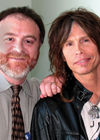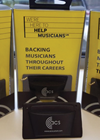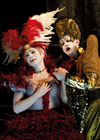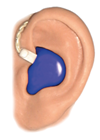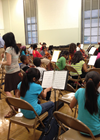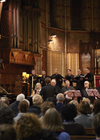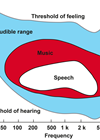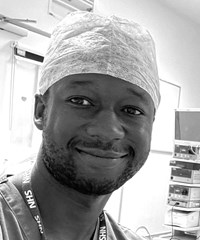ENT features archive for September 2016
Why does music move us? Music as auditory signals of emotion
Music forms an integral part of the lives of people in all known cultures around the world. In this article Dr Sandra Garrido explains that in fact, our response to music is largely innate and is related to the evolutionary...
Medical and surgical management of performing vocalists
Dr Steven Zeitels is widely recognised as the foremost laryngologist of his generation. He has been at the forefront of innovation for 25 years, and has treated innumerable high-profile singers, most recently Sam Smith and Adele. Here, he gives us...
Tone deafness and perfect pitch
If you think you are tone deaf, do not despair. Singing tuition should help but it is probably too late to hope to develop perfect pitch. Consultant otolaryngologist and keen musician, Chris Aldren, discusses the complex and fascinating subject of...
A new hearing health scheme for musicians
Joe Hastings, Health & Welfare Manager for Help Musicians UK, discusses the results of the charity’s 2015 survey of musicians’ hearing and plans for a new scheme which will give all professional musicians in the UK affordable access to specialist...
Why is a Raven like a writing desk? Some reflections on countertenors and castrati
The countertenor voice has seen a resurgence in popularity in the last 50 years. Nicholas Clapton is one of the foremost performers and teachers of his generation, and he tells us here about the link between countertenors and the (fortunately...
The sound of music for adult cochlear implant recipients
Dr Valerie Looi has dedicated her academic career to investigating music perception in people who have cochlear implants, and more recently, the potential of music training for improving their music perception. This article outlines current research relating to music perception...
CI music: seeking perfection, accepting reality
Having just read about the challenges cochlear implant technology and music appreciation present, the musician Richard Reed beautifully illustrates the realities of this patient journey. An old friend of mine is an ardent music fan, and completely tone deaf. Long...
Vocal cord dysfunction and dysfunctional breathing: an evolving clinical paradigm
Patients frequently present to the ENT department with breathing difficulties. The entity of ‘vocal cord dysfunction’ (also known as paradoxical vocal cord movement, inducible laryngeal obstruction, and many other names) is increasingly well recognised. Ravi Thevasagayam gives us an overview....
IEM – no noise is good noise!
Whether you’re an active musician or a music-loving commuter, noise exposure via music is a very real concern. Musician, sound engineer and Puretone Sales Manager, Deke Frickey, looks at where the dangers lie and the best ways to overcome them....
Music, hearing, and education: from the lab to the classroom
Historically, research assessing the impact of musical training has focused on those children whose families are able to pay for private lessons. In this article however, Nina Kraus outlines the findings of one of her recent projects; assessing the impact...
Singing after laryngectomy: Shout at Cancer
Thomas Moors is an ENT junior doctor with a background in music and singing. Combining these interests, he has set up a charity to help patients who have had a laryngectomy. He has achieved considerable public attention, and he tells...
Optimising hearing aid processing for music appreciation
Hearing aid manufacturers’ main focus has, up until recently, been improvement of speech intelligibility. Today’s hearing aid users have much broader demands however and often cite improved music perception as a key outcome or goal. Drs Tish Ramirez and Rebecca...



